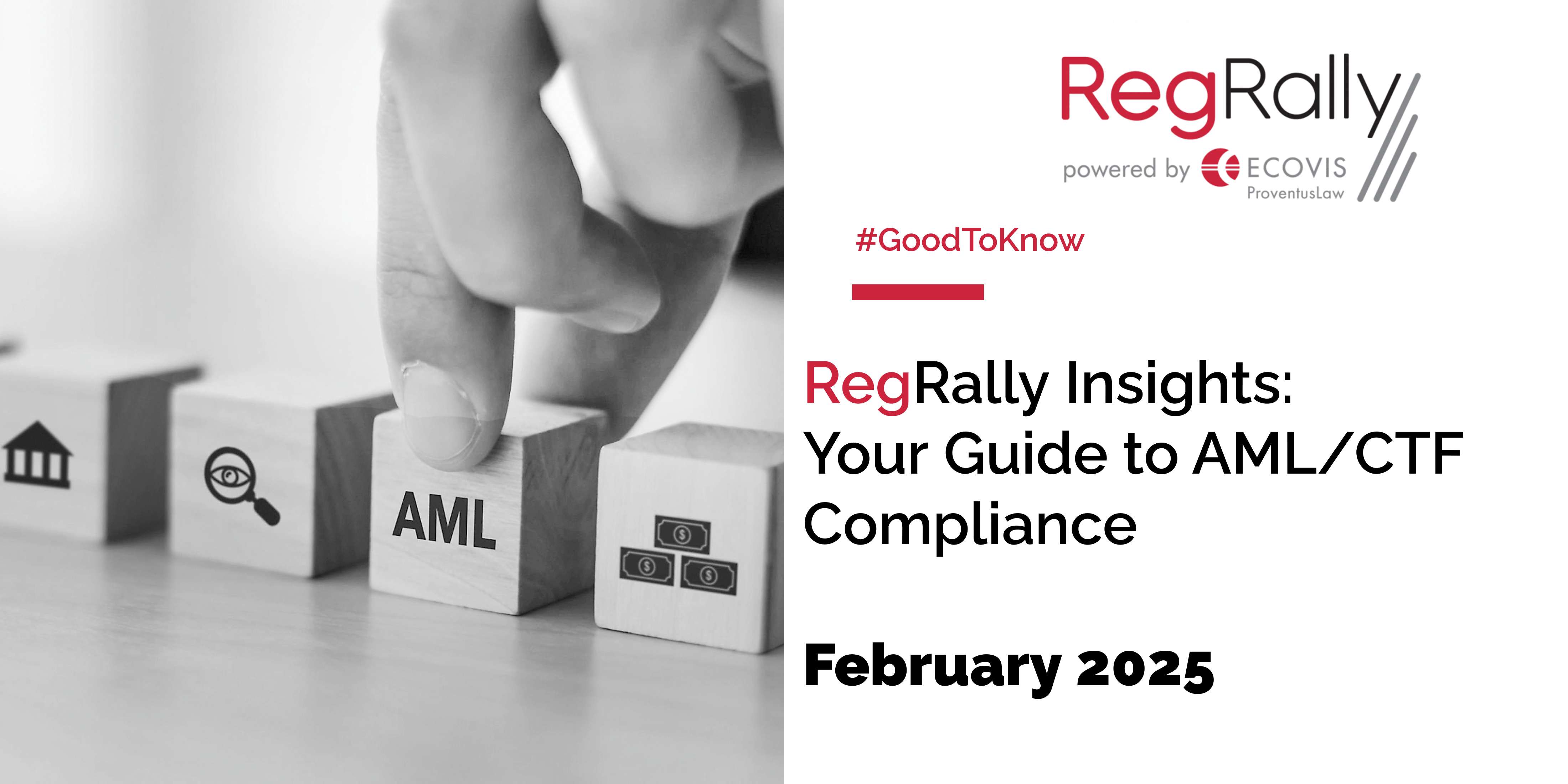ECOVIS ProventusLaw has prepared a new newsletter on Anti-Money Laundering and Counter-Terrorist Financing. It is dedicated to everyone who wants to understand the latest trends and developments, get tips from our experts and deepen their knowledge.
FCA Updates Analysis on Money Laundering Through Markets (MLTM)
The Financial Conduct Authority (FCA) has released an updated analysis highlighting the evolving risks of money laundering through capital markets (MLTM). This report underscores the importance of robust systems, controls, and staff training to mitigate these risks.
Key Findings
- Good and Poor Practices Identified: The FCA shared case studies, best practices, and areas needing improvement for capital market firms.
- Review Focus: Assessments covered Business-Wide Risk Assessments (BWRA), Customer Risk Assessments (CRA), Customer Due Diligence (CDD), Transaction Monitoring (TM), Suspicious Activity Reporting (SARs), and training.
- Challenges Identified: gaps in transaction monitoring systems, limited awareness of the UK Financial Intelligence Unit MLTM SAR glossary code, poorly documented CRA methods.
Recommendations
To strengthen compliance, firms should consider the following:
1. Integrate MLTM Risks into BWRA: Ensure that money laundering threats specific to capital markets are incorporated into the risk assessment process.
2. Enhance Training Programs: Provide targeted training to improve staff awareness of MLTM risks and the proper use of SAR glossary codes.
3. Improve Transaction Monitoring Systems: Implement more effective systems and controls to detect suspicious activities in capital market transactions.
PSFA Updates Enterprise Fraud Risk Assessment Guidance
On January 13, 2025, the UK Public Sector Fraud Authority (PSFA) released updated guidance for Enterprise Fraud Risk Assessments (EFRA), providing essential insights for fraud risk management amidst rising regulatory scrutiny. Acknowledging the increasing importance of proactive fraud prevention, the guidance emphasises EFRA as a key tool for senior management to effectively identify and mitigate fraud risks.
The PSFA outlines a structured approach, recommending assessments by business areas or themes, clear documentation of risks, and periodic reviews. Fraud risks should be well-defined, detailing the actor, action, and outcome, and backed by solid evidence. The guidance also stresses maintaining a comprehensive fraud risk register and treating EFRA continuously.
This resource is invaluable for organisations seeking to enhance anti-fraud measures and align with best practices, particularly in light of similar recommendations from the Bank of Lithuania, which advocates annual EFRA reviews for financial market participants.
Bank of Lithuania Announces 2025 Inspection Plan
The Bank of Lithuania has unveiled its 2025 inspection plan, which includes up to 30 inspections and visits to bolster transparency and cooperation with financial institutions. The inspections will primarily focus on compliance with AML/CTF requirements and the robustness of internal controls.
Key Focus Areas
- AML/CTF Compliance: Audits will cover 5 electronic money and payment institutions, 2 insurance companies, 3 banks, 1 credit union, and 12 other entities.
- Operational and IT Risk Management: Visits will assess institutions’ risk management frameworks and internal governance practices.
- Unannounced Inspections: Joint reviews with the European Central Bank may be conducted to address emerging risks.
By publishing its inspection plan in advance, the Bank of Lithuania aims to encourage institutions to proactively address potential risks, fostering smoother collaboration and strengthening market resilience.
Latvijas Banka’s 2025 Supervision Priorities
Latvijas Banka will focus on resilience, sustainability, and market conduct risk to ensure financial stability and adaptability:
- Operational and Financial Resilience: Emphasis on profitability, credit risk, DORA compliance, and crypto-asset risk management.
- Business Model Sustainability: Focus on climate change risks and aligning with sustainability requirements.
- Market Conduct Risk: Ensuring fair pricing, product suitability, accurate information, and cross-border transparency.
In 2025, 22 on-site inspections are planned across credit institutions, insurance, investments, and payment services, alongside targeted reviews for prudential supervision, financial crime prevention, and IT risks.
FCA Calls for Stronger Anti-Money Laundering Controls by Wholesale Brokers
The FCA urges wholesale brokers to enhance their systems, controls, and training to prevent money laundering in capital markets. Key areas for improvement include:
- Risk Awareness: Avoid underestimating money laundering threats.
- Due Diligence: Reduce over-reliance on third parties.
- Information Sharing: Strengthen collaboration between firms.
- Suspicious Reporting: Improve awareness of reporting codes for market-related money laundering.
Firms should regularly assess and strengthen their anti-financial crime measures to safeguard trust in financial markets.
FCA Urges PSPs to Strengthen Money Mule Detection and Reporting
The FCA highlights critical gaps in how PSPs combat money mulling, urging firms to:
- Improve NFD Reporting: Only 37% of offboarded money mules are reported—this must increase.
- Enhance Monitoring: Conduct real-time NFD checks and respond to later-generation mule alerts.
- Refine Onboarding: Collect complete income and turnover data to flag potential risks.
- Document Investigations: Maintain thorough records to justify decisions.
Strengthening collaboration and transaction monitoring will help disrupt illicit activities more effectively.
Robinhood Fined $45M for AML and Regulatory Failures
The Securities and Exchange Commission has fined Robinhood $45 million for deficiencies in its anti-money laundering (AML) program and other regulatory failures. The SEC found significant delays in filing suspicious activity reports (SARs), which were not addressed until mid-2022. The company’s rapid user growth outpaced its AML capabilities and faced issues with unauthorised system access and data retention. Robinhood acknowledged these largely historical issues and committed to internal auditing its compliance practices.


 Newsletter Subscription
Newsletter Subscription